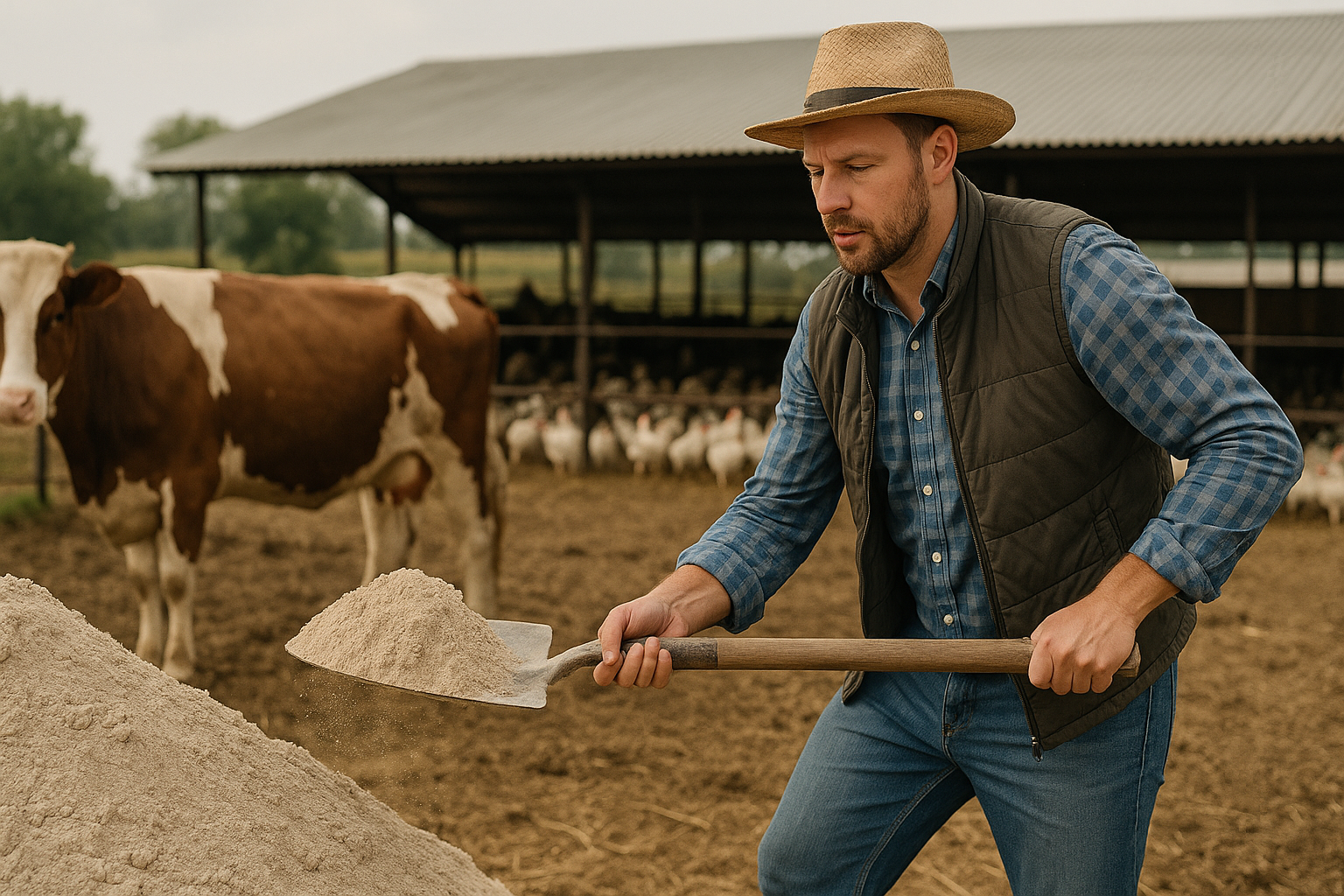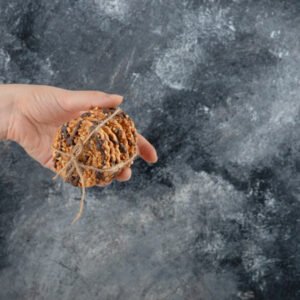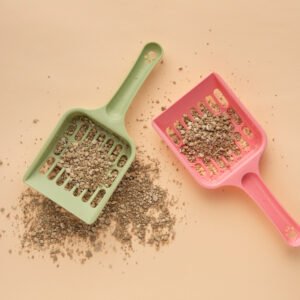Modern livestock farming faces countless challenges, from mycotoxin contamination to feed quality issues. Smart farmers turn to proven solutions that protect their animals while boosting productivity. Bentonite powder for feed has emerged as a game-changing additive that addresses multiple concerns with one natural solution.
This clay-based mineral offers remarkable benefits for cattle and poultry operations. From binding harmful toxins to supporting digestion, bentonite transforms ordinary feed into a protective shield for animal health. Let’s explore why this natural additive has become a cornerstone of modern animal nutrition.
What Makes Bentonite Powder Special for Animal Feed
Bentonite belongs to the montmorillonite clay family, formed from volcanic ash over millions of years. This natural origin gives it unique properties that make it perfect for animal feed applications. The clay contains layers of aluminum and silicon that create microscopic spaces capable of trapping toxins and harmful substances.
CMS Bentonite is the top choice of veterinarians for its multiple benefits. As a carrier of micronutrients and a nutrient-enhancer in cattle, it is safe, non-toxic, and highly colloidal. Its smooth distribution ensures consistent protection for every animal. Discover the key uses of bentonite powder in animal feed to improve livestock health and nutrition.
The mineral’s natural structure creates a negative charge that attracts positively charged toxins like a magnet. This binding action happens throughout the digestive system, protecting animals from harmful substances before they can cause damage.
Primary Benefits of Bentonite Powder for Feed Quality
Mycotoxin Binding Protection
Mycotoxins pose one of the biggest threats to livestock health. These toxic compounds form when mold grows on feed ingredients, especially during storage or transport. Bentonite, a natural clay, is an effective inorganic mycotoxin binder. It binds mycotoxins in the digestive tract, thereby reducing the amount that enters the animal’s bloodstream.
The binding process works through several mechanisms:
- Chemical interactions through cation exchange
- Physical adsorption through pore structure
- Van der Waals forces that trap toxin molecules
- Hydrogen bonding that secures harmful compounds
Feed Pellet Stability and Quality
Feed manufacturers love bentonite because it acts as a natural binder. Our bentonite feed additive helps reduce the harmful effects of mycotoxins, enhances feed pellet stability, and supports optimal gut health in animals. This dual action means farmers get better feed quality while protecting their livestock.
The clay particles help create stronger pellets that resist breaking during transport and handling. This reduces feed waste and ensures animals receive proper nutrition portions. Strong pellets also prevent dust formation, which can cause respiratory issues in both animals and handlers.
Digestive Health Support
CMS FEED® enables the absorption of nutrients and facilitates digestion. It’s safe and non-toxic. The clay’s natural properties help maintain proper pH levels in the digestive tract, creating an environment where beneficial bacteria can thrive.
Regular bentonite supplementation supports:
- Better nutrient absorption rates
- Reduced digestive disorders
- Improved feed conversion ratios
- Lower incidence of scours in young animals
Why Cattle Farmers Choose Bentonite Supplementation
Cattle operations face unique challenges that bentonite addresses effectively. Ruminants process large volumes of roughage that may contain mycotoxins from field exposure or storage conditions. The clay provides continuous protection as feed moves through the complex four-chamber digestive system.
Dairy farmers particularly value bentonite’s ability to maintain milk quality. When cows consume mycotoxin-contaminated feed, these toxins can transfer to milk, creating food safety concerns. Bentonite binding prevents this transfer, protecting both cow health and milk safety.
Beef cattle benefit from improved weight gain and feed efficiency, as the clay’s binding action removes antinutrients that hinder protein synthesis and growth. This results in better daily gains and improved market weights. Beyond livestock, Cat Litter Bentonite is also valued for its strong absorption and safe, natural properties.
Here’s what cattle farmers report after adding bentonite to feed:
- Reduced veterinary costs from digestive issues
- Better reproduction rates and fertility
- Improved coat condition and overall appearance
- Higher milk production in dairy operations
Poultry Industry Applications and Results
Poultry operations show dramatic improvements with bentonite supplementation. Ideal for cattle, poultry, swine, sheep, and aquaculture, our bentonite feed additive helps reduce the harmful effects of mycotoxins, enhances feed pellet stability, and supports optimal gut health in animals.
Commercial broiler operations see measurable benefits in growth rates and feed conversion. The clay’s protective action allows birds to utilize more nutrients for growth rather than fighting toxin-related stress. This results in better weights at processing time.
Egg-laying hens benefit from reduced mortality rates and consistent production. Mycotoxins can severely impact egg production, causing drops in laying rates and shell quality issues. Bentonite prevents these problems by removing toxins before they affect the bird’s reproductive system.
Layer farms using bentonite report:
- Consistent egg production throughout laying cycles
- Better shell quality and reduced breakage
- Lower mortality rates in flock management
- Reduced medication costs from fewer health issues
Safety Considerations and Proper Usage Guidelines
Feed-grade bentonite must meet specific safety standards for animal consumption. The EFSA Panel on Additives and Products or Substances used in Animal Feed (FEEDAP) received a request from the European Commission to assess the safety and efficacy of bentonite when used as a feed additive. This regulatory oversight ensures products meet safety requirements.
Proper dosage rates vary by animal type and feed composition. Cattle typically receive 1-2% of total feed weight, while poultry operations use 0.2-0.5% inclusion rates. These levels provide effective mycotoxin binding without interfering with nutrient absorption.
Quality control measures include:
- Testing for heavy metal content
- Verifying particle size distribution
- Checking moisture levels and purity
- Confirming mycotoxin binding capacity
Natural Clay Benefits vs Synthetic Alternatives
Natural bentonite offers advantages over synthetic mycotoxin binders. Feeding earth (clays) to animals is not new or abnormal. Wild animals always consume a healthy portion of earth alongside their feed, especially those that look for food below ground. This natural behavior suggests clay consumption supports animal health.
Synthetic binders may bind nutrients along with toxins, potentially causing deficiencies. Natural bentonite shows selective binding properties that target harmful compounds while allowing nutrients to pass through the digestive system.
Environmental benefits include:
- Biodegradable and natural decomposition
- No synthetic chemicals or additives
- Sustainable mining practices
- Minimal processing requirements
Cost-Effectiveness and Return on Investment
Smart farmers view bentonite as an investment rather than an expense. The cost of adding bentonite to feed pales in comparison to treating sick animals or dealing with reduced productivity. Prevention costs significantly less than cure in livestock operations.
Economic benefits include:
- Reduced veterinary expenses
- Better feed conversion ratios
- Higher production yields
- Fewer animal losses from toxin-related deaths
Feed mills find bentonite cost-effective because it serves multiple functions. The clay acts as a pellet binder, reduces dust, and provides mycotoxin protection. This multi-purpose nature eliminates the need for separate additives.
How CMS Industries Supports Modern Feed Applications
CMS Industries has established itself as a trusted supplier of high-quality bentonite products for animal feed applications. Their expertise in bentonite processing ensures farmers receive consistent, effective products that meet strict quality standards.
The company’s feed-grade bentonite undergoes rigorous testing to verify safety and efficacy. Their quality control processes ensure each batch meets the specific requirements for animal consumption. This attention to detail gives farmers confidence in product performance.
CMS Industries offers technical support to help farmers integrate bentonite into their feeding programs. Their team understands the unique challenges facing livestock operations and provides guidance on proper usage rates and application methods.
Their commitment to quality extends beyond just product manufacturing. The company works closely with feed mills and farmers to optimize bentonite usage for specific operations. This collaborative approach ensures customers achieve maximum benefits from their bentonite investments.
Conclusion
Bentonite powder for feed represents a natural, cost-effective solution for modern livestock challenges. Its proven ability to bind mycotoxins, support digestive health, and stabilize feed quality makes it an essential tool for successful farming operations.
Smart farmers recognize that prevention costs less than treatment. By incorporating high-quality bentonite into feed programs, they protect their investments while ensuring animal welfare and productivity.
Ready to protect your livestock with proven bentonite solutions? Contact CMS Industries today to learn more about their feed-grade bentonite products and discover how this natural additive can transform your feeding program. Their experienced team stands ready to help you implement effective mycotoxin binding strategies that protect your animals and boost your operation’s profitability.
Frequently Asked Questions
Q:1 What is the recommended dosage of bentonite powder for cattle feed?
The typical inclusion rate for cattle feed ranges from 1-2% of total feed weight. Start with lower rates and gradually increase based on animal response and feed quality requirements.
Q:2 Can bentonite powder interfere with nutrient absorption in poultry?
High-quality feed-grade bentonite shows selective binding properties. It targets harmful mycotoxins while allowing essential nutrients to pass through the digestive system for proper absorption.
Q:3 How long does bentonite remain active in animal feed?
Bentonite maintains its binding capacity throughout the digestive process. The clay particles continue working from ingestion through excretion, providing continuous protection against toxin absorption.
Q:4 Is bentonite powder safe for organic livestock operations?
Natural bentonite clay meets organic standards in many regions. Check with your organic certification body to confirm approved sources and usage guidelines for your specific operation.
Q:5 What storage conditions preserve bentonite powder effectiveness?
Store bentonite in dry, covered areas away from moisture and contaminants. Proper storage maintains the clay’s binding capacity and prevents clumping that could affect feed mixing.







